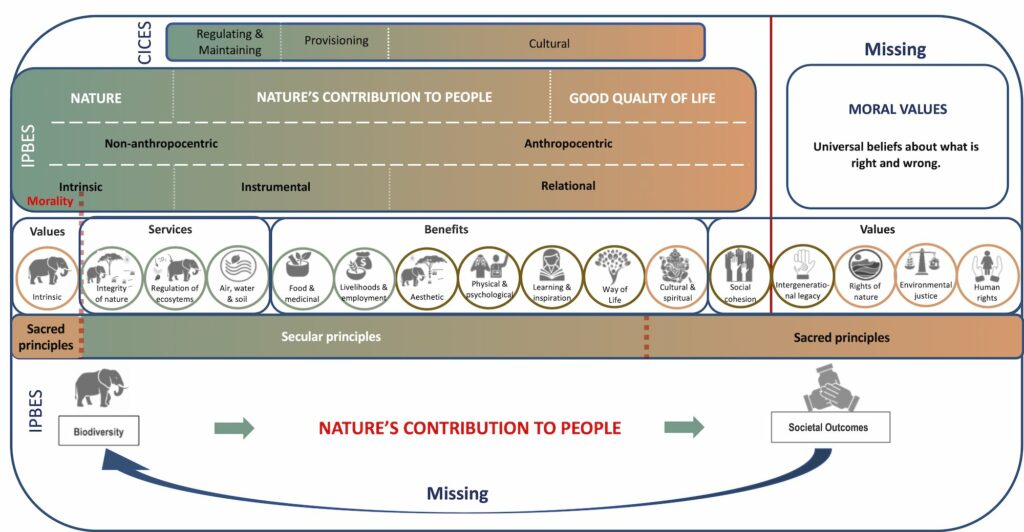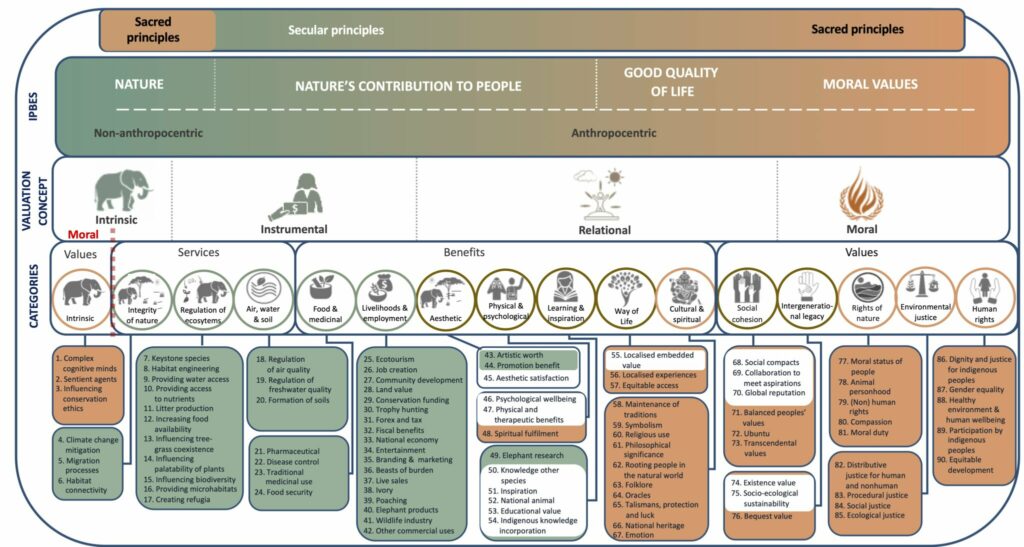On October 19, 2022 we published a scientific paper in Ecosystem Service about the value of elephants for people and the beautiful planet we share. We identified 90 services, benefits and values associated with elephants. We specifically highlighted the importance of considering often neglected moral values in conservation decisions, which can lead to more support for conservation and a transition to a just, ethical and sustainable world.
Van de Water, A., Henley, M. D., Bates, L., & Slotow, R. (2022). The value of elephants: A pluralistic approach. Ecosystem Services, 58(101488). https://doi.org/10.1016/j.ecoser.2022.101488
Highlights
- We identify the multiple, overlapping benefits to humans and nature that elephants provide.•
- We augment existing valuation systems with moral values, and feedback to promote equity and common good.•
- Conservation trade-offs can be better managed when all peoples’ values are considered and balanced.•
- Accounting for the needs and values of local people promotes sustainable and just conservation.
Abstract
Biodiversity conservation strategies may prioritise certain values of nature over others. Whilst there will likely always be a need for compromise in conservation planning, the consequences of trade-offs depend on peoples’ relative perceptions of values that are promoted or neglected. In practice, not fully understanding or taking into account the value systems of all stakeholders, including local people, leads to contention, social inequality, and ineffectiveness. Elephants provide an excellent case study to illustrate the need for multidimensional valuation systems as they provide multiple overlapping services and benefits in ecological, socio-cultural, economic, and spiritual dimensions. Yet, their conservation is often highly contentious and fiercely debated. Here, we present a pluralist valuation system that identifies the varied services and benefits of elephants, but which adds important dimensions missing from current frameworks such as that of IPBES. Two key additions: (1) incorporating moral values alongside the services and benefits, and (2) incorporating a feedback loop to promote mutually reinforcing interactions, will better support holistic and equitable conservation. Additionally, to aid the interrogation of the kinds of problems that lead to contention in elephant conservation, we mapped the types of trade-offs that occur when different values are at stake, which allows us to identify balanced conservation solutions that will lead to unity. This pluralist valuation approach, which is similarly applicable to other species and ecosystems, clarifies the necessity of properly accounting for stakeholder values in decision making, and promotes fairer conservation decisions that will generate broader buy-in and support, uniting people, and facilitating socially just and sustainable conservation outcomes.


